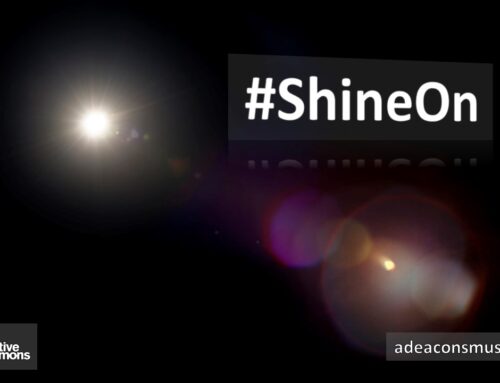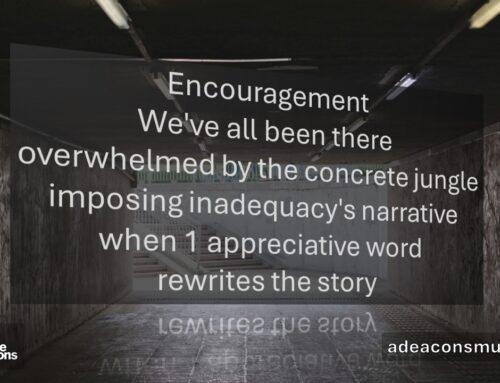There I was, surrounded by 60+ people who were sending one another off into the world. We were holding hands and had named ourselves as a family. The synergy and energy that connected us was palpable and the gratitude for that was clearly evident.
As we checked out with affirmations, we recognised the innovation that had been created, imagined the creativity yet to bloom and honoured the wisdom of the elders in our midst. I thought to myself how amazing and humbling it was to be surrounded by a room of “teenagers” – though dressed in different ages and stages of life – who not only passionately held on to the ideal of changing the world, but who were making conscious choices everyday to do that very thing! It was a rather remarkable gathering!
Now it might make sense if you assumed I was talking about a gathering of United Church peeps, perhaps a spirituality exploration or study, or even a missional dreaming opportunity. And – though that could make sense – the reality is that I was being embraced by fellow practitioners, from across North America, Europe and Nepal, of Appreciative Inquiry (AI)!
Each of us, who came from different contexts and places, gathered to explore, reflect and embolden one another with this philosophical outlook that takes very seriously the idea that the groups, families and systems in which we walk everyday possess the wisdom to embrace change with vibrancy and generativity. In particular, it emphasizes that the wisdom in our stories contains rich resources, which will allow us to transform what was good in the past into what is great in the future.
As one Sister in the Christian faith who is also an Indigenous Elder describes, AI is like standing in between the generations. Looking to your left, you see those from whom you have travelled and those to your right those toward whom we are journeying. The gift, with such a breadth of view, is being able to make choices now, grounded in what was, so that they will positively impact children whom we will never meet!
As I returned from this time of learning and community, which is part of my own ongoing PhD journey, I began to reflect on the changes that lie before us. As we who call ourselves The United Church of Canada confront structural changes that can seem daunting, it is sometimes easy to feel like we are unmoored from identity. As the structures that once moored us become loosened, perhaps even obliterated, it is easy to lose sight of how we might ensure that the generations before us are nurtured and stewarded well.
I do not think there is any right or cookie-cutter answer for us, no matter how tempting it might be to desire a quick fix. I think that what this experience reminds me of is that in each of our lives and stories, the passionate past can embolden a life-giving future, if we recognise that it is in God’s abundance that we are sharing. And – as those called to bear bushels of wheat – we are called to share that abundance extravagantly, even with abandon!
For me, AI is a constant teacher, reminding me that our passion takes us into places unknown, sometimes even that are dangerous. In Christian language, this sometimes is referred to as bearing the Cross. In this Lenten time, when shadows gather, remembering the core of our passion promises to enable us embrace the choices that will ensure that the children whom will never know will awaken to the Blessing they are. Sometimes, even if sacrifice, loss or sorrow are the places into which we walk, it is that passionate core that continues to remind us we not only can, but that we are called to be co-creators of the Kingdom, which is constantly coming and which we will never fully see in this mortal journey called life …
On Leadership … with Christien Oudshoorn from Joep C de Jong on Vimeo.









Your reflections are most welcome!